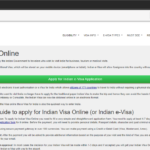In the world of healthcare, maintaining patient confidentiality and data security is not just a regulatory requirement—it’s a fundamental aspect of trust between patients and healthcare providers. Medical billing services play a crucial role in this process, handling sensitive patient information that requires robust security measures. But how exactly do these services ensure that patient data remains secure throughout the billing process? Let’s dive into the mechanisms and strategies that safeguard this vital information.
Understanding Medical Billing Services
Definition and Purpose
Medical billing services are specialized entities that handle the complex process of submitting and managing claims with insurance companies. They ensure that healthcare providers are reimbursed accurately and promptly for their services Outsource Medical Billing Services. This involves coding medical procedures and diagnoses, submitting claims, and following up on payments. Given the sensitive nature of the information they handle, maintaining high levels of data security is paramount.
Role in the Healthcare System
These services bridge the gap between patients, healthcare providers, and insurance companies. They manage a vast amount of personal health information (PHI), which includes medical histories, treatment details, and payment information. Proper handling of this data is critical not only for financial reasons but also for maintaining patient trust and compliance with legal standards.
Key Data Security Challenges in Medical Billing
Types of Sensitive Information
Medical billing involves various types of sensitive information, including:
- Personal identification details (name, address, date of birth)
- Health records and medical histories
- Insurance details and billing information
Potential Threats and Vulnerabilities
The sensitive nature of this data makes it a prime target for cyberattacks. Common threats include:
- Phishing scams aimed at stealing login credentials
- Malware attacks that can compromise data integrity
- Unauthorized access by internal or external actors
Regulatory Framework for Data Security
Health Insurance Portability and Accountability Act (HIPAA)
HIPAA is the cornerstone of healthcare data security in the United States. It sets national standards for the protection of patient information and mandates the implementation of safeguards to ensure the confidentiality, integrity, and availability of health data.
Other Relevant Regulations
In addition to HIPAA, other regulations such as the General Data Protection Regulation (GDPR) and the Health Information Technology for Economic and Clinical Health (HITECH) Act also play significant roles in ensuring data security and privacy Radiology Billing Services.
Data Encryption Techniques
What is Data Encryption?
Data encryption is the process of converting data into a code to prevent unauthorized access. It ensures that even if data is intercepted or accessed without permission, it cannot be read or used without the decryption key.
How Encryption Protects Patient Data
Encryption safeguards patient data during transmission (e.g., when sending claims to insurers) and while stored (e.g., in electronic health records). This means that even if data is compromised, it remains unreadable without the appropriate decryption keys.
Secure Data Storage Practices
On-Site vs. Cloud Storage
Medical billing services may use on-site servers or cloud-based storage solutions. Both options have their security protocols, but cloud storage often provides enhanced security features like automatic updates and backup.
Best Practices for Secure Storage
- Use strong encryption methods for stored data
- Implement access controls and authentication mechanisms
- Regularly update and patch storage systems to address vulnerabilities
Access Control Mechanisms
Role-Based Access
Access to patient data should be restricted based on the roles and responsibilities of staff members. Role-based access ensures that only authorized personnel can view or modify sensitive information.
Multi-Factor Authentication
Multi-factor authentication (MFA) adds an extra layer of security by requiring users to provide multiple forms of verification (e.g., password and a code sent to their phone) before accessing systems.
Regular Security Audits and Compliance Checks
Importance of Routine Audits
Regular security audits are essential for identifying potential vulnerabilities and ensuring compliance with regulations. These audits help in detecting and addressing security issues before they can be exploited.
How Audits Enhance Security
Audits provide a comprehensive review of security practices, helping organizations to improve their systems and maintain high standards of data protection Mips Reporting.
Training and Awareness Programs for Staff
Importance of Staff Training
Staff training is crucial for ensuring that all employees understand their role in maintaining data security. Training programs should cover topics like recognizing phishing attempts, securely handling data, and following company policies.
Key Topics Covered in Training
- Data protection laws and regulations
- Proper use of encryption and security tools
- Response procedures for data breaches
Incident Response and Management
What to Do in Case of a Data Breach
Having a clear incident response plan is vital. This plan should outline steps for containing the breach, notifying affected individuals, and reporting the incident to authorities.
Steps for Effective Incident Management
- Quickly identify and contain the breach
- Communicate with affected parties and stakeholders
- Conduct a thorough investigation and implement corrective measures
Third-Party Vendor Management
Evaluating Vendor Security Measures
When outsourcing billing services, it’s important to assess the security measures of third-party vendors. This includes reviewing their data protection practices and ensuring they comply with relevant regulations.
Ensuring Compliance Across the Supply Chain
Maintain a rigorous vendor management program to ensure that all parties involved in handling patient data adhere to the same high standards of security.
Patient Awareness and Consent
Educating Patients on Data Security
Patients should be informed about how their data is used and protected. Providing clear and accessible information helps build trust and ensures that patients are aware of their rights.
Importance of Patient Consent
Obtaining explicit consent from patients for the use and sharing of their data is not only a legal requirement but also an essential practice for maintaining transparency and trust.
Technological Innovations in Data Security
Emerging Technologies
New technologies, such as artificial intelligence and blockchain, are enhancing data security. These innovations offer advanced protection methods and help in detecting and mitigating threats.
Future Trends in Data Protection
As technology evolves, so will data protection strategies. Staying ahead of emerging threats and adopting new technologies will be crucial for maintaining data security in the future.
Case Studies and Real-World Examples
Examples of Successful Security Implementations
Exploring real-world examples of effective data security implementations can provide valuable insights into best practices and successful strategies.
Lessons Learned from Security Incidents
Examining past security incidents helps in understanding vulnerabilities and improving security measures. Learning from these incidents is key to enhancing data protection strategies.
Conclusion
Ensuring patient confidentiality and data security during the medical billing process is a multifaceted challenge that requires a combination of regulatory compliance, advanced technologies, and rigorous practices. By implementing robust security measures, regularly auditing practices, and educating staff, medical billing services can protect sensitive patient information and maintain trust in the healthcare system. As technology and regulations evolve, staying informed and adaptable will be essential for continued success in safeguarding patient data.
FAQs
What is HIPAA and how does it affect medical billing?
HIPAA (Health Insurance Portability and Accountability Act) sets national standards for protecting patient health information. It requires medical billing services to implement strict data security measures and safeguard patient privacy.
How can encryption protect my medical data?
Encryption transforms data into a coded format that is unreadable without the appropriate decryption key. This protects your medical data from unauthorized access during transmission and storage.
What should I do if I suspect a data breach?
Immediately report the breach to your organization’s IT department or data security officer. Follow your incident response plan to contain the breach and notify affected individuals and relevant authorities.
How often should security audits be conducted?
Security audits should be conducted regularly, typically annually or semi-annually, to ensure ongoing compliance and identify potential vulnerabilities.
What are the benefits of staff training in data security?
Staff training helps employees understand their role in data protection, recognize potential threats, and follow best practices for handling sensitive information, thereby reducing the risk of data breaches.


